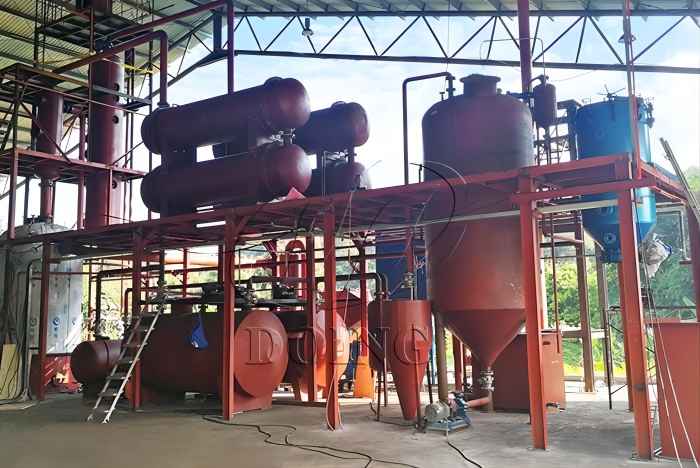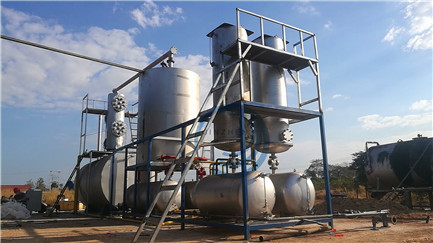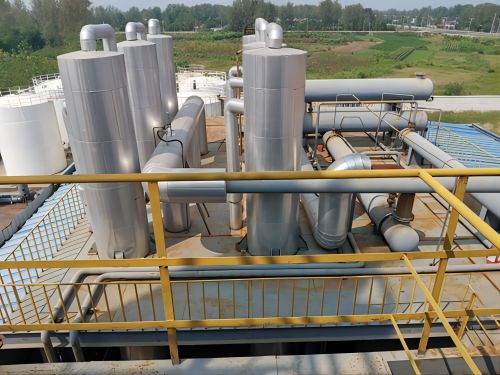Exploring the Types of Used Oil Refinery Plants and Their Impact
Used oil is a valuable resource that, when improperly discarded, can pose significant environmental risks. Used oil refinery plants play a crucial role in addressing these concerns by recycling and reusing used oil, thereby reducing waste and preserving valuable resources. These plants are classified into various types based on processing techniques, scale, technology, and end products. In this article, we delve into the different types of used oil refinery plants and their impact on the environment and economy.

Classification Based on Processing Techniques
Re-Refining Plants
Re-refining plants are designed to process used oil through a series of steps, including distillation, hydrotreating, and solvent extraction. These processes help remove contaminants and impurities from the used oil, resulting in high-quality base oils that can be used for manufacturing lubricants and other industrial applications. Re-refining plants are known for their efficient methods of producing premium-grade base oils that meet industry standards. This type of plant is particularly effective in closing the loop on the oil lifecycle, reducing the reliance on virgin crude oil extraction.
Reclamation Plants
Reclamation plants focus on transforming used oil into recycled fuel oils and lubricants. These plants typically employ methods like filtration and sedimentation to separate contaminants from the used oil. The end products, such as recycled fuel oils, can be utilized in various industrial processes. Reclamation plants offer an alternative to disposal by turning used oil into valuable resources, thus contributing to waste reduction and sustainable practices.
Classification Based on Scale and Capacity
Small-Scale Refinery Plants
Small-scale refinery plants are localized operations designed to cater to regional waste management needs. These plants are equipped to process smaller quantities of used oil, making them ideal for managing waste from local sources such as automobile repair shops and small industries. While their processing capacity is limited compared to larger facilities, they play a vital role in reducing the environmental impact of used oil disposal on a community level.
Large-Scale Refinery Plants
Large-scale refinery plants operate on an industrial level with extensive processing capabilities. These plants are equipped to handle significant volumes of used oil, allowing for efficient and large-scale recycling. Due to their scale, they have a broader environmental and economic impact by processing a substantial amount of used oil that would otherwise contribute to pollution and resource depletion.

Classification Based on Technology and Innovation
Traditional Refinery Plants
Traditional refinery plants follow established methods of processing used oil. These methods have been refined over time and involve conventional techniques and equipment. While they may lack some of the advanced technologies seen in more modern facilities, they still contribute significantly to waste reduction and resource conservation.
Advanced Refinery Plants
Advanced refinery plants leverage modern technology to enhance efficiency and output quality. These plants may incorporate automation, digitalization, and innovative processing techniques to optimize the recycling process. By using advanced technologies, these plants can achieve higher levels of purity in the end products and reduce the energy consumption associated with traditional methods.
Classification Based on End Products
Base Oil Production Plants
Base oil production plants primarily focus on re-refining techniques to produce high-grade base oils. These base oils are then used as a primary ingredient in the manufacturing of lubricants. The re-refining process ensures that the end products meet industry specifications and can be used in various applications, contributing to the sustainability of the lubricant industry.
Fuel Oil Production Plants
Fuel oil production plants specialize in transforming used oil into recycled fuel oils suitable for industrial purposes. These fuel oils can be used in various processes, including energy generation and heating. By converting used oil into useful fuels, these plants contribute to reducing the demand for virgin fossil fuels and minimizing the environmental impact associated with their extraction and combustion.

Conclusion
Used oil refinery plants encompass various types, each with its own set of advantages and contributions to waste reduction and resource conservation. Whether through re-refining to produce high-quality base oils or reclamation to create recycled fuel oils, these plants play a pivotal role in promoting sustainability, minimizing environmental harm, and driving economic growth. As technology continues to advance and sustainability becomes an increasingly critical concern, the evolution of these plants will shape the future of waste management and resource utilization.







